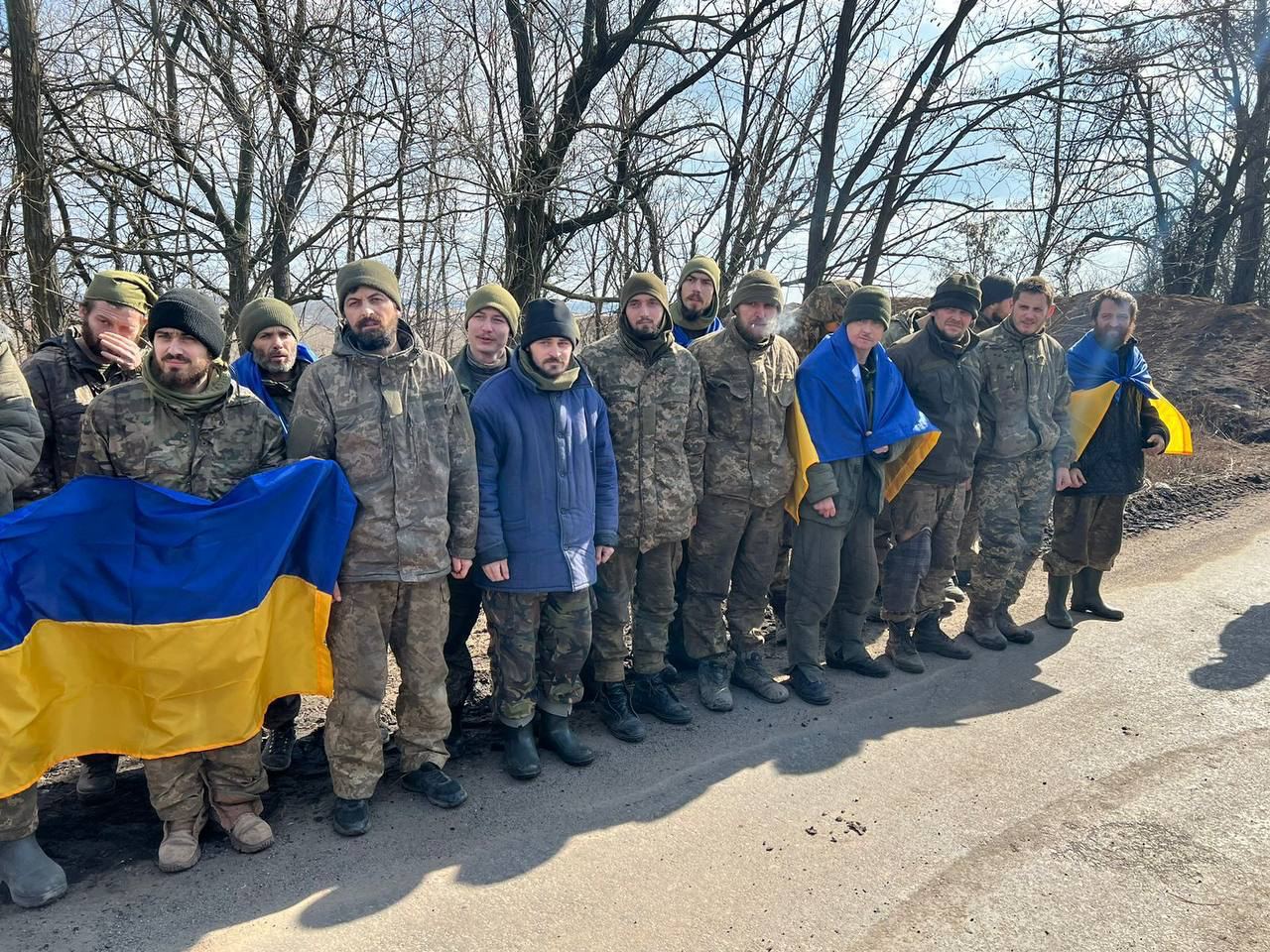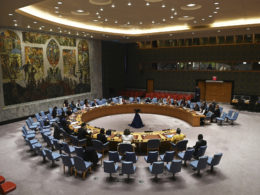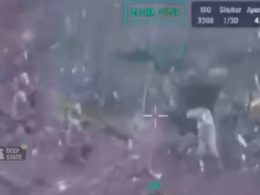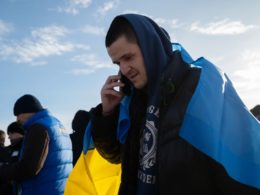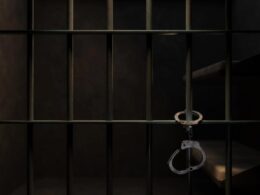Ukrainian prisoners of war are calling their families in Ukraine en masse from Russian captivity, asking them to protest against the Ukrainian government, Petro Yatsenko, spokesperson for Ukraine’s coordinating staff on the treatment of prisoners of war, told Politico.
Since the beginning of the full-scale Russian invasion, Ukraine has returned 2,598 people from Russian captivity during 48 swaps, according to the Ukrainian military. The last official POW swap took place on 7 August 2023. Since last summer, Russia has shown no interest in exchanging POWs.
Valentyna Tkachenko, the wife of a Ukrainian POW, told Politico that her husband Serhii was taken prisoner on the first day of the Russian full-scale invasion.
Serhii, a Ukraine's National Guard soldier, was guarding the Chornobyl nuclear power plant when the Russian forces attacked it. The Russians occupied Chornobyl on 24 February 2022 and captured 167 National Guard soldiers, including Serhii. At the end of March 2023, the Russian forces retreated from Chornobyl and the rest of the Kyiv Oblast, taking all Ukrainian POWs with them.
Since then, the wives of the captured Ukrainian soldiers have only heard from them once. Six months after they were taken prisoner, Ukrainian POWs were allowed to send back home a short handwritten note. That was how Valentyna Tkachenko learned her husband was still alive.
Like thousands of other relatives of Ukrainian POWs, Valentyna Tkachenko contacted the Ukrainian authorities and the International Committee of the Red Cross (ICRC) and wrote four letters, but to no avail.
On 29 November 2023, Valentyna received a video call from Serhii via the Viber messaging app.
"We talked only for three minutes. I was not allowed to ask him questions. As soon as I tried, he shook his head and just said no. Instead, he kept saying: ‘Go make things hard for Kyiv. Kyiv does not want to take us back,'” Valentyna Tkachenko told Politico.
Valentyna did not go to the protest, believing that her husband had become an instrument of the Russian political game against Ukraine.
Petro Yatsenko, spokesperson for Ukraine’s coordinating staff on the treatment of prisoners of war, told Politico that other Ukrainian families have received similar calls from POWs held by the Russians.
“A person has not heard from a relative for more than a year, and here he calls and says that he is alive. Russians are ready to exchange him, but Ukraine does nothing. Recently these calls became massive. So, we understood that this is a campaign to cause distrust in the government,” Petro Yatsenko said.
During a news conference in Kyiv earlier this week, Ukraine's President Volodymyr Zelenskyy said that Russia has "very specific" reasons to slow down the exchange of POWs. According to Politico, Russia's refusal to exchange prisoners of war appears to be aimed at stoking tensions in Ukrainian society.
"They started so well, exchanged so much. But then suddenly everything stopped. I think the Russians want to discredit our government. People are exhausted, and relatives of prisoners of war are losing their temper. They [the Russians - ed.] want to sow chaos [in Ukraine- ed.]," Valentyna Tkachenko told Politico.
Currently, Russia is holding more than 3,000 Ukrainian soldiers and about 28,000 civilians, according to the Ukrainian Ombudsman's office and the Ministry of Reintegration. However, the actual number may be even higher because some of those in captivity have not yet been confirmed and identified. These people are still considered 'missing,' Petro Yatsenko told Politico.
According to Yatsenko, Ukraine has recently increased its POW "exchange fund" and is ready to accept all Russian soldiers if they decide to surrender. Ukraine treats Russian POWs under international rules, while Russia practices cruel treatment of prisoners, Yatsenko told Politico.
“More than 90 percent of prisoners of war whom we interview after their return say that they were subjected to torture, deprivation of sufficient nutrition and sleep,” Yatsenko said. “People are being forced to burn out tattoos or to consume only Russian propaganda. They are not allowed to communicate with relatives,” he added.
The International Committee of the Red Cross (ICRC) visits prisoners of war on both sides of the frontline. The ICRC representatives have visited 2,300 POWs to date. However, according to Politico, Russia has not fully opened its facilities to external inspection.
Related:
- Russian troops execute Ukrainian POWs in southeastern Ukraine
- UN report accuses Russia of war crimes in Ukraine: Torture, sexual violence, and murder revealed
- Russian military used Ukrainian POWs as human shields, Prosecutor’s Office confirms
- Wagner defector exposes Russia's Donbas ruse, false-flag ops in bombshell interview
- Ukrainian Army names POW who Russians executed for saying "Glory to Ukraine"
- "I never cried, I just screamed in pain." Survivors of Russian torture chambers speak

